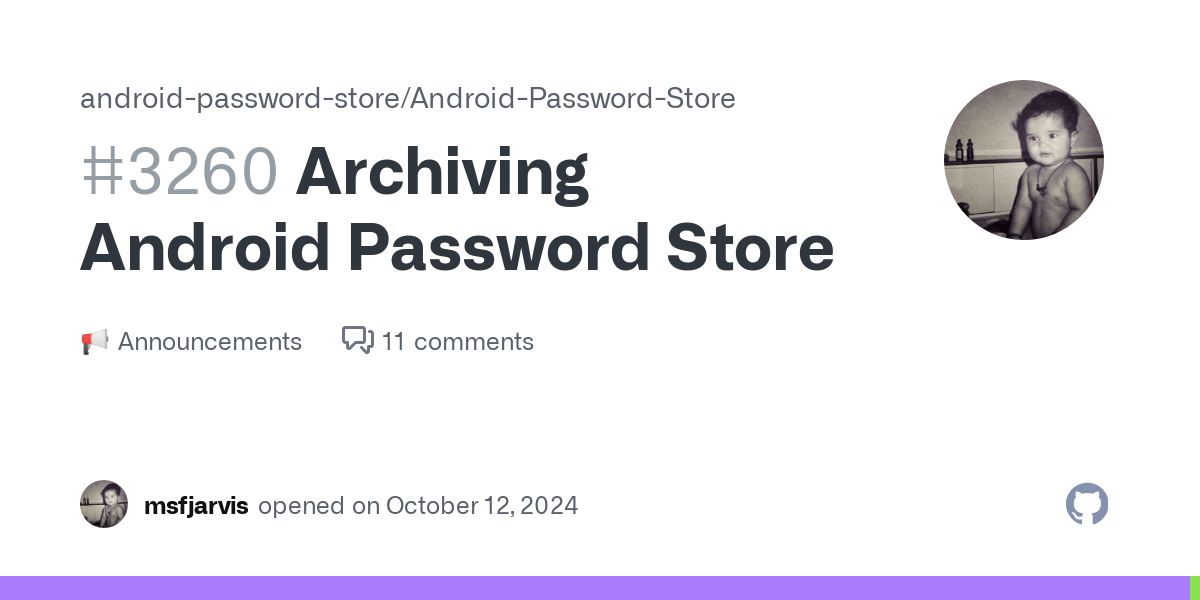Over the past 3 years the pace of development in APS has steadily fallen off as maintainers including myself have moved on to other things. I no longer have time and motivation to dedicate to this project, and in the absence of significant external contributions there is no-one else I can offer the project’s stewardship to.
To that effect, I will be archiving the repository on Monday, October 14th 2024 at 7AM GST. In the situation that a serious and viable fork emerges, I will help them as much as I can with the transition. The criteria for what counts as “serious and viable” is entirely vibes-driven for now, and may become more specific in the future. In case I determine that a fork does not live up to my made up standard, they will have to come up with a slightly more creative name than “Android Password Store” and watch low 4 figures of cash wither away in OpenCollective’s bank account.



That is why you use an open source manager. KeePassXC for example is not owned by a for-profit company.
Losing the container due to corruption disk failure etc can be easily managed with backups.
Losing the password. Yes this is a real valid scenario. I personally have no problem with that i manage fine for years without having to write it out on paper to backup it. A solution would be to actually write that password out somewhere and hide it/ put it into a safe. An attack then needs to attack both, depending if you use disk encryption it is easy to get access to the password safe or not. There are other things to consider, like you could try to hide it in a very long string of characters like 20 pages of random characters, even if you forget it you will be able to find it cause it is very likely that you remember a few characters.